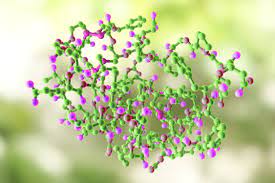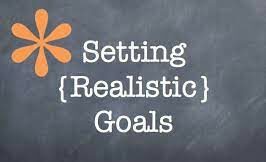Did you know that obesity and eating disorders are two of the most common chronic illnesses in the United States? In fact, over 30 million Americans are affected by one or both of these conditions. If you or someone you love is struggling with obesity or an eating disorder, it’s important to get educated about these diseases. In this blog post, we will discuss the causes and symptoms of obesity and eating disorders, as well as treatment options.
Contents
Understanding Obesity And Eating Disorders
 Obesity is described as an excessive amount of body fat. It’s often measured by Body Mass Index (BMI), which you can calculate using this BMI Calculator. A person is considered obese if they have a BMI of 30 or higher. Obesity puts individuals at risk for developing other chronic conditions like heart disease, stroke, and type II diabetes.
Obesity is described as an excessive amount of body fat. It’s often measured by Body Mass Index (BMI), which you can calculate using this BMI Calculator. A person is considered obese if they have a BMI of 30 or higher. Obesity puts individuals at risk for developing other chronic conditions like heart disease, stroke, and type II diabetes.
On the other hand, eating disorders are mental disorders that are characterized by an unhealthy relationship with food. This can manifest in a number of ways, including:
- overeating,
- undereating, and
- binge eating.
Eating disorders often go hand-in-hand with other mental health conditions like anxiety and depression. It’s important to note that obesity and eating disorders are not the same thing, though they are both serious conditions that can have a major impact on a person’s health.
If you think you may be struggling with obesity or an eating disorder, it’s important to reach out for help. You can talk to your doctor or a mental health professional to get started on the road to recovery. Remember, you are not alone in this and there is help available.
What’s The Connection Between Obesity And Eating Disorders?
It is no secret that obesity and eating disorders are both major public health concerns. In the United States alone, it is estimated that one in three adults are obese, and one in ten suffers from an eating disorder. In fact, around the globe, people are struggling with these conditions at alarming rates.
So, what is the connection between obesity and eating disorders? Well, there are a few key ways that these two conditions are linked. Let’s take a closer look:
Body Image
This is the most obvious connection between the two conditions. People who are obese often have a negative body image, and people with eating disorders often obsess over their weight and appearance. In fact, research has shown that people who are obese are more likely to suffer from an eating disorder, and vice versa.
This is because both conditions involve a distorted view of one’s body. People who are obese may see themselves as overweight, unattractive, and unworthy. Similarly, people with eating disorders often see themselves as fat, despite being underweight. This distorted view of one’s body can lead to a dangerous cycle of bingeing and purging or starving oneself in an attempt to lose weight.
Biochemical Factors
 It is now well accepted that certain biochemical factors play a role in the development of both obesity and eating disorders. For example, abnormalities in the levels of certain hormones (e.g., leptin, ghrelin, neuropeptide Y) have been implicated in the development of obesity.
It is now well accepted that certain biochemical factors play a role in the development of both obesity and eating disorders. For example, abnormalities in the levels of certain hormones (e.g., leptin, ghrelin, neuropeptide Y) have been implicated in the development of obesity.
Similarly, abnormalities in neurotransmitter function (e.g., serotonin) have been implicated in the development of both anorexia and bulimia nervosa. While more research is needed to fully understand the role of these biochemical factors, it is clear that they play a significant role in the development of both obesity and eating disorders.
Role of Genetics
It is also now well accepted that genetics plays a role in the development of both obesity and eating disorders. A person’s genetic make-up can influence how they respond to their environment, including things like what foods they crave and how their bodies process those foods.
Studies have shown that people with certain genes are more likely to become obese or develop an eating disorder. But it is important to remember that genes are not the only factor. Things like a person’s lifestyle, behaviors, and even culture can also play a role.
So, the connection between obesity and eating disorders is complex. But, it is important to be aware of the potential link between the two conditions. If you or someone you know is struggling with either obesity or an eating disorder, please seek professional help.
What Are Some Common Symptoms?
Both obesity and eating disorders are actually quite difficult to spot. This is because different people will show different symptoms, and some people might not show any at all. However, there are some common symptoms that you can look out for:
Changes in eating habits
People with both obesity and eating disorders often have drastic changes in their eating habits. This can include anything from eating much more or much less than usual, to skipping meals altogether. In fact, people with eating disorders often use food as a way to cope with their feelings, which is why changes in eating habits are often one of the first symptoms that people notice.
Weight gain or loss
Another common symptom of both obesity and eating disorders is sudden weight gain or weight loss. This is usually a result of the changes in eating habits that come with both disorders. If you notice that someone close to you has suddenly gained or lost a significant amount of weight, it may be worth talking to them about their eating habits and whether they are struggling with an obesity or eating disorder.
Changes in mood
This symptom is more common in those with binge eating disorders but can be present in people with other types of eating disorders as well. Binge eaters may feel ashamed or guilty after overeating. While anorexics and bulimics may feel relief or even pleasure. Also, it is common for people with eating disorders to become depressed. This can be due to the physical changes that are taking place in their bodies, or because of the negative thoughts, they have about themselves.
Isolation and withdrawal from activities
 These are common behaviors among people suffering from eating disorders. They may feel like they need to be alone in order to deal with their disorder, and they may pull away from friends and family. This can be a difficult time for loved ones, but it’s important to remember that the person is not withdrawing from you, they are withdrawing from themselves.
These are common behaviors among people suffering from eating disorders. They may feel like they need to be alone in order to deal with their disorder, and they may pull away from friends and family. This can be a difficult time for loved ones, but it’s important to remember that the person is not withdrawing from you, they are withdrawing from themselves.
Other physical symptoms
There are a number of other physical symptoms that are associated with obesity and eating disorders. For example, people who are obese often suffer from:
- joint pain,
- sleep apnea, and
- respiratory problems.
People with eating disorders often have a hard time digesting food properly, which can lead to gastrointestinal issues. Both groups of people may also suffer from:
- low self-esteem,
- depression, and
- anxiety.
So, these are some of the common symptoms associated with obesity and eating disorders. If you or someone you know is struggling with either of these conditions, it’s important to seek professional help. There are a number of resources available that can help you on your road to recovery.
How To Manage Obesity And Eating Disorders?
When you are struggling with obesity, the thought of having to diet and exercise can be daunting. You may feel like you have no control over your eating habits and that you will never be able to lose weight. However, there are things you can do to manage obesity and eating disorders.
Here are some tips:
Find a support group
Support groups are a great way to share your experiences with others who are going through the same thing. This can be a great way to get motivated and stay on track. There are many online support groups that you can join. Some are led by professionals, while others are peer-supported. You just need to find one that fits your needs.
Make a plan
When you are trying to lose weight, it is important to have a plan. This plan should include what you will eat, how much you will exercise, and when you will do these things. This will help you stay on track and make sure that you are doing everything possible to reach your goal. In fact, planning is the primary step after you have decided that you want to lose weight.
Set realistic goals
 It is important to set realistic goals when you are trying to lose weight. If you set goals that are too high, you may get discouraged and give up. On the other hand, if your goal is too low, you may not see the results you want. The best way to set a realistic goal is to talk to your doctor or a dietitian. They will be able to help you set a goal that is right for you. For instance, a goal of losing five pounds in a month may be realistic, but a goal of losing 20 pounds in a month is probably not.
It is important to set realistic goals when you are trying to lose weight. If you set goals that are too high, you may get discouraged and give up. On the other hand, if your goal is too low, you may not see the results you want. The best way to set a realistic goal is to talk to your doctor or a dietitian. They will be able to help you set a goal that is right for you. For instance, a goal of losing five pounds in a month may be realistic, but a goal of losing 20 pounds in a month is probably not.
Find an activity you enjoy
Exercise is important when you are trying to lose weight, but it does not have to be boring. There are many different activities that you can do to get moving and burn calories. Find an activity that you enjoy and make it a part of your routine. This could be:
- walking,
- biking,
- swimming, or
- even dancing.
Exercising is simply means of being physically active to maintain good health and it can be anything that gets you moving. In fact, the best exercise is the one that you will actually do.
Make healthy choices
Healthy choices are actually essential for your success in managing obesity and eating disorders. When you make healthy choices, you are more likely to stick with your plan and reach your goals. Some healthy choices include:
- eating plenty of fruits and vegetables,
- choosing lean protein sources,
- avoiding sugary drinks, and
- limiting processed foods.
Whenever possible, choose foods that are natural and unprocessed. These foods will help you feel full and satisfied, while still providing the nutrients your body needs. In fact, by making healthy choices, you will be more likely to reach and maintain a healthy weight.
Monitor your progress
It is important to monitor your progress when you are trying to lose weight. This can be done by:
- Tracking your weight
- Measuring your waistline
- Take pictures of yourself
This will help you to see your progress and stay motivated. In addition, you can keep a food diary to track what you are eating. This will help you to see where you need to make changes in your diet. Doing so will actually motivate you and help you to make healthier choices. Make sure that you are being consistent with it.
Talk to a therapist
 When you feel like you’re struggling with your relationship with food, it can be really helpful to talk to a therapist. A therapist can help you understand your thoughts and feelings around food and can give you tools to manage any disordered eating behaviors. If you think you might benefit from talking to a therapist, reach out to someone today. Also, a therapist will be able to help you work through any body image issues you may be experiencing.
When you feel like you’re struggling with your relationship with food, it can be really helpful to talk to a therapist. A therapist can help you understand your thoughts and feelings around food and can give you tools to manage any disordered eating behaviors. If you think you might benefit from talking to a therapist, reach out to someone today. Also, a therapist will be able to help you work through any body image issues you may be experiencing.
And, there are even numerous therapy types that are specifically geared toward helping people with eating disorders. So, if you are struggling with an eating disorder, know that there is help available and that you can get better.
Talk to a dietitian
In obesity and eating disorders, talking to a dietitian can be very helpful. Dietitians are experts in nutrition and can help you develop a healthy eating plan. They can also provide support and guidance if you’re struggling with an eating disorder. Moreover, a registered dietitian is considered a medical expert and can provide invaluable information to your doctor.
In fact, there are people with obesity who feel that they have an eating disorder. If you feel like you can’t control your eating, or if you’re preoccupied with food and body image, you may want to talk to a doctor or mental health professional. Eating disorders are serious medical conditions that require treatment.
Start with small
This is the most important advice we can give: start with small changes. If you’re trying to lose weight, don’t overhaul your entire diet and lifestyle overnight. Making big changes all at once is overwhelming, and often leads to giving up entirely.
Instead, focus on making small tweaks to your eating and activity habits. For example, try swapping out sugary drinks for water, or adding an extra 20 minutes of walking to your daily routine. These small changes will add up over time, and eventually, you’ll reach your goals. Also, start today. Not tomorrow, or next week, or next month. Today.
Making small changes is essential, but it’s also important to keep your goals realistic. So these are our tips for starting your journey to a healthier you. With these tips, you’ll be well on your way to reaching your goals and improving your health in the process. Good luck!
Conclusion
To conclude, obesity and eating disorders are two very different but equally serious conditions. Research has shown that they share some risk factors, such as socioeconomic status and genetic disposition. While there is no one “cause” of either condition, both can have devastating effects on an individual’s physical and mental health.
Therefore, consider seeking professional help if you or someone you know is struggling with obesity or an eating disorder. With treatment, it is possible to improve your quality of life significantly.
You can also contact Mantra Care. The team of expert mental health professionals will be more than happy to provide you with guidance and support. Mantra Care provides mental health services around the globe at convenient and affordable prices. You can also book a therapy or download our free Android or iOS app.
In addition, Mantra Care has a registered dietitian to help you make the best food choices for your journey, as well as a team of highly qualified and certified personal trainers to help you recover from an eating disorder. Visit our website or give us a call today!


